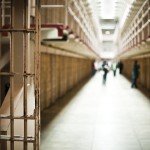According to a new study, people diagnosed with bipolar disorder are less likely to complete college. This makes a lot of sense. Neither mania nor depression is conducive to effective studying and showing up prepared for class. With depression, the motivation is completely gone, often along with the ability to focus and concentrate. With mania, what might first start out as an enhanced ability to study for hours on end can ultimately devolve into delusions and paranoia and hospitalization.
I’m a relatively smart guy. Up until my own psychological problems got really out of control, when I was about 16, I got terrific grades and was usually at the top of my class. Then the mood swings started--for me, hypomania, followed by severe agitation mixed with mild depression and compulsive behavior and ultimately a dive bomb into major depression. Up until I finally received a bipolar diagnosis a few years ago, I repeated this cycle on schedule about once every three years. Wash. Rinse. Repeat.
I started college several times only to abandon it around the time that the mixed agitation and depression set in. Ultimately, I stopped trying. By the time I got diagnosed correctly and started treatment with a mood stabilizer, I was 38 years old. I know it’s never too late, but along with meds, one of the most critical contributors to my mental health is to not to overdo things and completely throw off my daily work, eat, sleep cycle--even on the weekends. It sucks not being able to work or play (or in the case of college stay up studying) until one in the morning without serious consequences, but my stability is precious to me and not something I like to mess with anymore. My worry is that college, on top of a full time job, could easily push me past the tipping point--to speak nothing of the cost involved.
In the study, published by the American Psychiatric Association, Justin Hunt, MD, and his colleagues found that several psych disorders disrupted successful completion of college. Aside from bipolar disorder, abuse of pot, cocaine and methamphetamine also tanked a person’s likelihood of a college diploma.
I’m not saying, nor is the study, that untreated bipolar was the only reason I failed to complete college. Plenty of bipolar people accomplish that goal. Having uncontrolled bipolar certainly doesn’t help, however.
The study’s authors conclude: “The findings suggest that psychiatric factors play a significant role in college academic performance, and the benefits of prevention, detection, and treatment of psychiatric illness may therefore include higher college graduation rates.”
Maybe some day I’ll finally wear the cap and gown. I’m not big on ceremony nor standing in front of a large crowd with a silly hat on, but for me to accomplish such a monumental goal would be a profound testament to how far I’ve come. Bipolar disorder has taken lots of things from me over the years. Maybe a college education doesn’t have to be one of them.
Bipolar Disorder Keeps Some from a College Degree







Comments
Comments